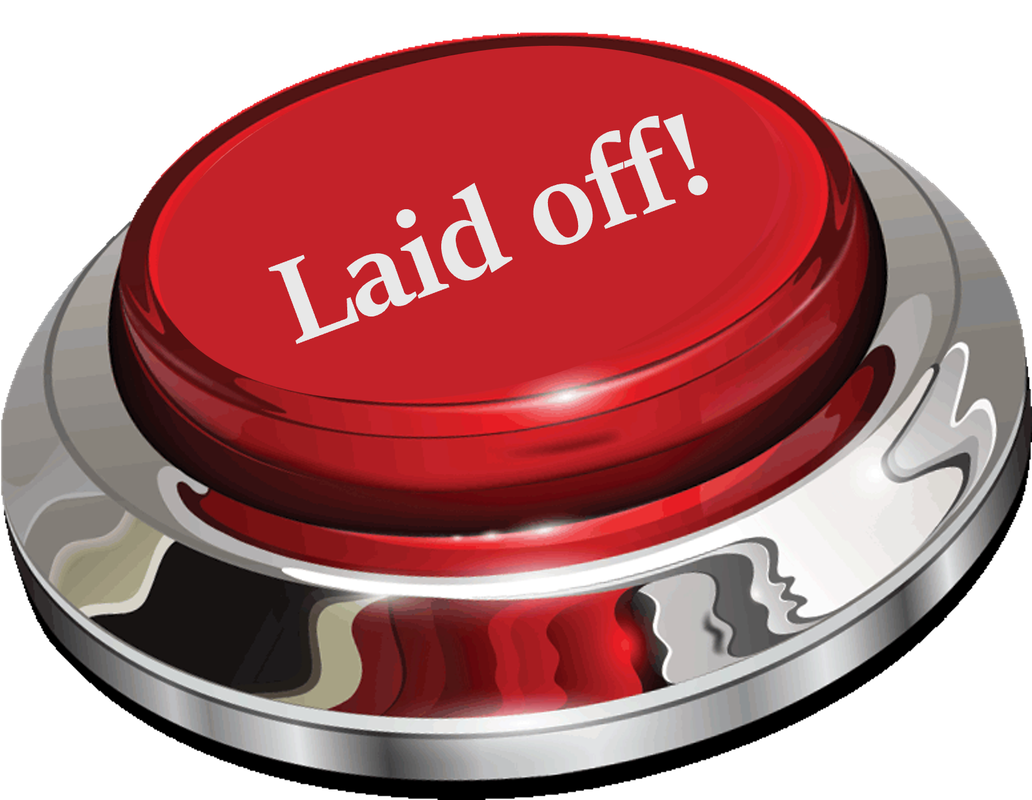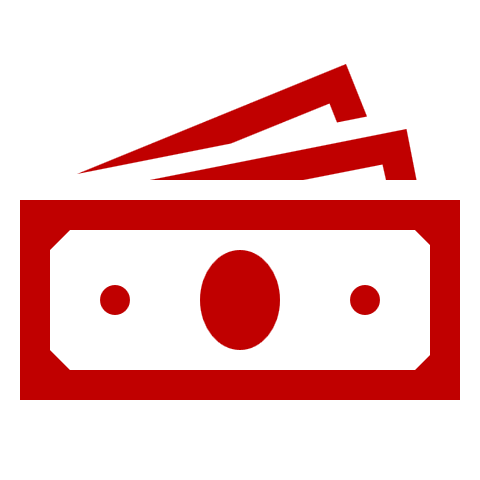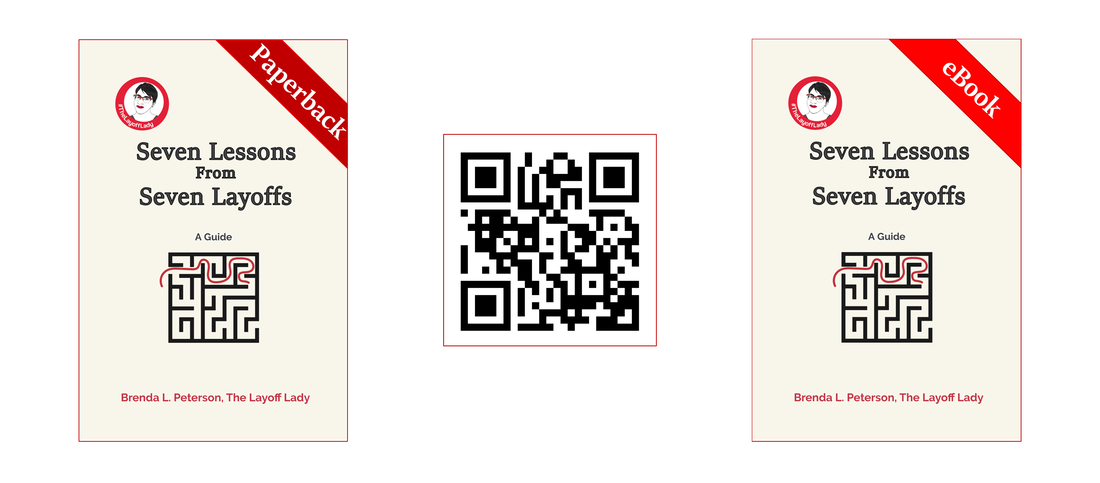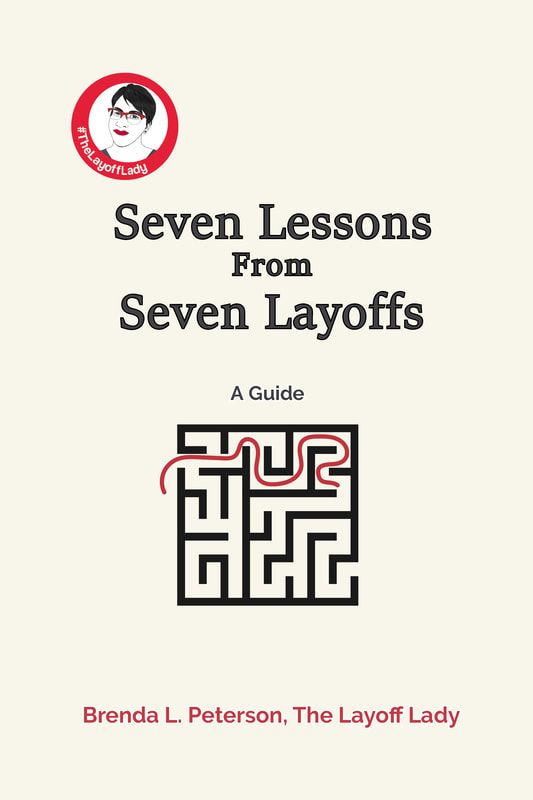|
By Brenda L. Peterson, The Layoff Lady About The Seven Layoff LessonsThrough my seven layoffs and many conversations with others in post-layoff career transition, I have learned seven core lessons:
About Lesson Two: Keep Your Mind on Your Money (and your money on your mind).Most people work to pay their bills and afford the life they want. Unfortunately, when your job ends, so does your main income stream—and possibly your health insurance, too. Making the right short-term changes can help you weather the storm while also minimizing long-term financial repercussions. Let’s look at a few key components of this lesson. Post-Layoff ChangesAfter a layoff, many things in your financial life change. Now, you don’t know when your next paycheck will arrive or how much it might be. However, you do know that you need to figure out how to survive financially from now until that unknown future date. As you wrestle with uncertainty, you need to research options, run the numbers, and make the right decision for your household. New Financial GoalsNext, it’s important to adopt new interim financial goals. Now, the focus is not on getting ahead or progressing toward larger goals. Instead, your overarching goal is to live through your period of unemployment until you are gainfully employed again with as little long-term financial trauma as possible. Career Transition Income SourcesWith your day job gone, chances are your core source of income just evaporated. Instead, you’ll get one last paycheck. Your check may be a little larger than usual if you get a vacation payout and a little bigger still if they don’t deduct anything for the benefits you won’t have anymore. Depending on your situation, you might also get a severance payment—which could be any amount between a fat lot of nothing and the equivalent of several months of income. In most cases, when your job ends due to a layoff, you will be eligible for unemployment insurance (UI) benefits. UI replaces a portion of your employed income—which will most likely be significantly less than your previous paycheck. There are multiple ways to help fund your life varying from good to decidedly bad ideas. These could include using your savings, taking on short-term work, or incurring additional debt. Career Transition HealthcareWhile you’re working, your health insurance has a pretty good chance of being connected to your day job, and your employer may even pay a portion of your costs. When your job ends, you have a lot of decisions to make. You can continue your current health care coverage with a significantly higher cost, usually referred to as COBRA. If possible, you could become a dependent on someone else’s coverage or find a plan on Healthcare.gov. Alternatively, you could enroll in a lower-cost short-term health plan or find other ways to pay for healthcare costs. When it comes down to it, it’s essential to consider the short and long-term implications of your healthcare decisions—especially since having an unexpected health expense can cause severe financial hardship. Career Transition ExpensesUnfortunately, while your regularly scheduled income goes away, your expenses generally do not. Now, it’s more a matter of adjusting your priorities and seeing what you can do to streamline your layoff survival budget. When times are tight, you will need to make more calculated decisions regarding where you spend money. Line items like rent, car payments, and utilities may be non-negotiable, while you may need to pare down what you spend on non-essential expenses like entertainment and restaurants. As you work to minimize expenses, this is another area where making shortsighted decisions can cause long-term problems. You also need to make sure you still take part in activities that make you happy, even with less discretionary income. When Income and Expenses Don't Line UpOne of the harsh realities of career transition is that your current income may be significantly lower than your outgo. In these cases, you may need to take on additional work or incur some debt. If you can’t pay your bills, contact the company and discuss options. While it can be humbling, it’s better than damaging your credit score, which can negatively impact your financial life for years to come. For The Whole StoryFor all the information on each of the seven lessons pick up a copy of my book Seven Lessons From Seven Layoffs: A Guide. Learn More
0 Comments
Your comment will be posted after it is approved.
Leave a Reply. |

Just get laid off?
Click here for info on what to do first. Author7-time layoff survivor Brenda L. Peterson, The Layoff Lady, waxes poetic on layoffs, job transitions, & career resilience. Buy The Book!Were you recently laid off from your job and need a roadmap for what's next? Pick up a copy of my book, Seven Lessons From Seven Layoffs: A Guide!
Categories
All
Archives
July 2024
|





